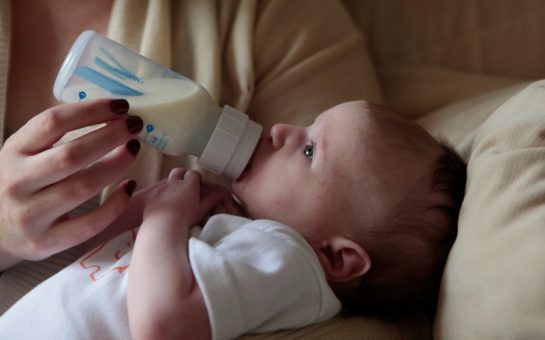A national alcohol charity is calling for the Government to raise alcohol duty by 2% in next week’s budget, and tackle rising numbers of alcohol-specific deaths through improved policy and regulation.
Alcohol Change UK is lobbying the Government, in the wake of the news that the number of alcohol-specific deaths rose to the highest level on record in 2020, according to recent provisional data from the Office for National Statistics.
Alcohol-specific deaths increased by 9.7% between January and March from the same period in 2019, and by 22.6% between July and September.
According to Alcohol Change UK, all of these deaths were preventable.
Provisional data showing age-standardised alcohol-specific death rates per 100,000 people in England and Wales, between 2001 and 2020. Source: ONS.
Lucy Holmes, Alcohol Change UK Director of Research and Policy, said: “The costs of alcohol harm are immense – in monetary terms as well as social terms.
“It has a huge impact in the health service and on other areas of society.
“It’s just really heartbreaking.
“There are some very straightforward things the Government can do to bring down the number of deaths and to bring down the amount of alcohol harm.
“You slightly increase the price, you restrict the marketing and advertising, and you limit alcohol’s availability.
“We’re calling on alcohol duty to be proportionate to harm caused. We think that alcohol harm costs the country about double what we bring in in alcohol tax, so it’s massively out of proportion.
“We also want duty to be related to the strength of the product, so that people slightly decrease the amount that they drink and therefore experience less harm.”
The ONS data only includes deaths that were a direct consequence of alcohol, such as alcohol-related liver disease, and does not include many other conditions which are adversely affected by alcohol.
In 2018, Public Health England estimated that the number of deaths that could be attributed to alcohol was 4.3 times higher than the number included within the data set for alcohol-specific deaths.
Holmes said: “The ONS say very explicitly this is a huge underestimate of the health burden from alcohol. These are only those deaths that are completely attributed to alcohol consumption.
“That is a very sharp end of a wedge and it’s still a huge number, that’s what shocks me so much.”
The reasons for this sharp rise are complex.
Lockdown played a huge part in changing drinking habits, but for some, this actually meant cutting consumption.
Holmes said: “This data and polling we have done ourselves really has shown a polarisation over the course of the lockdowns.
“Some people have responded to the lockdowns by drinking less or cutting out alcohol completely. But we have found that people who were already drinking quite heavily are more likely to have increased their drinking over lockdown.
“There’s a strange paradox that people who live in more deprived areas suffer greater alcohol harm even though on average people in those areas drink less than wealthier areas – we don’t really know why.
“But beyond that, the people in this mortality data are likely to have their life affected by alcohol over a long period. Maybe they’ve lost employment, or their housing has been under threat, as a result of their drinking.”
The pandemic has meant restricted access to health services, as well as misunderstanding about what is still available.
Although service providers have adapted brilliantly, Holmes said changes to their provision during the pandemic have worked better for some than others.
Moving away from face-to-face visits is a benefit for some as it means they do not have to leave home or use public transport, but accessing services over the phone can be equally difficult for others.
Data showed a downward trend for the number of people accessing support for alcohol-related issues even before the pandemic, and services had been reconfigured due to reduced local substance misuse budgets.
Holmes said: “The message that we and health providers are trying to give is that the health service is still open for business: if you need help, the NHS is still there to support you.”
Alcohol Change UK is also campaigning for alcohol care teams in hospitals to identify people who need support with drinking and deliver support.
It is estimated that one in ten hospital in-patients are alcohol-dependent.
Holmes said: “Alcohol’s one of those things that you see in all areas of medical practice, which means a lot of doctors who are working with people with alcohol problems are not alcohol specialists.
“By having an alcohol care team in a hospital, it means they can cover different wards and specialisms.”
Holmes is keen to state that the charity is not anti-alcohol, but anti-alcohol harm.
She said: “People stand to gain so much by just cutting out a bit of the alcohol they drink.
“We just had a record-breaking Dry January, and I think a lot of people recognise that slightly reducing is such a healthier way to live.
“Drinking is socially normalised and it’s something a lot of us do at a very low risk level.
“But there is risk, and as we try to recover from Covid with a resilient, healthy population, alcohol is a good place to start.”
If you or anyone you know is struggling with drinking, you can find support on the Alcohol Change UK website.




